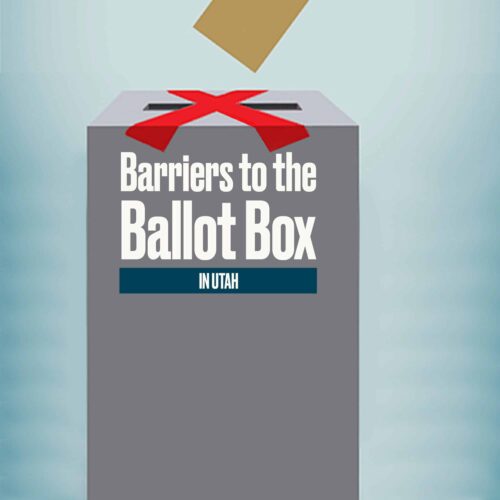Introduction
Indigenous Utah residents who live on the Navajo Nation reservation in the southeastern part of the state have gained tools in recent years that will help them vote in the upcoming general election.
And through legislation and court battles, access to ballot boxes across the state has also broadened.
Sign up for The Moment newsletter
Our CEO Susan Smith Richardson guides you through conversations and context on race and inequality.
Voters can register on Election Day, no photo ID is required to cast a ballot and Utah is one of few states that mails every registered voter a ballot.
One consequence of the push toward mail-in voting has been the disappearance of some of the state’s in-person polling places, said Nikila Venugopal, voting rights manager for the American Civil Liberties Union of Utah. While mail-in voting is important, she said, it’s still essential to have polling places for rural residents and people who need help with translation.
In addition to retaining polling centers, the ACLU of Utah has been pushing counties to prepay for the postage on ballots, because most residents aren’t aware that they can mail a ballot without postage and it will still be counted, Venugopal said.
“We would really like to see counties provide prepaid postage to make sure nobody ever feels like they need to pay to vote in any sort of way,” Venugopal said.
And one-off problems still exist. For example, the Salt Lake City Tribune wrote about a rogue elections clerk in rural Utah who made residents provide documents that aren’t required by law when they attempt to register to vote.
Here’s a look at some of the barriers to voting in Utah:
Lack of addresses
Back when the nonprofit Rural Utah Project started registering voters in 2018, organizers noticed that up to 30 percent of the people who lived on the part of Navajo Nation that stretched into southeastern Utah were registered in the wrong precinct, if they were registered at all.
Other Navajo residents who were running for office were facing questions about their candidacies.
The problems stemmed from a lack of a traditional physical address.
The Rural Utah Project began using Google Plus Codes to help assign physical locations to houses on the reservation. Google Plus Codes are short codes for places that don’t have their own street address.
“You’re dealing with a part of the country that is the size of West Virginia and has about 7,000 residents sprawled over an immense landscape,” said Madeline McGill, communications director for Rural Utah Project. “Our goal is to get addresses for everyone.”
So far, the organization has helped 5,000 residents get addresses using Google Plus Codes, which are accepted on voter registration cards.
“We believe that politics has been done a certain way in southern Utah for a long time, and we believe rural populations are not a monolith,” McGill said. “There’s an incredible diversity in small towns and on indigenous lands, so we want to give under-represented voices a seat at the table in terms of how rural politics are run.”
Felony disenfranchisement
In Utah, residents who are convicted of felonies cannot vote until they are released from prison.
Venugopal said the state is “ahead of the curve” in one respect, though. Unlike many states, Utah allows parolees to vote.
“The biggest barrier we’ve identified is the lack of information,” Venugopal said. “Everybody just assumes that you can never vote again (if you are convicted of a felony), which isn’t true and is a real shame.”
Read more in Money and Democracy
US Polling Places
GOP lawsuit in Nevada is a second attack on state’s expanded mail-in voting
The state has made voting more accessible overall, but casting a ballot remains difficult for many in tribal communities.
US Polling Places
In Nebraska, voting by mail could be even more accessible, advocates say
All citizens can vote absentee, but the state could make it easier by automatically mailing ballots.


Join the conversation
Show Comments